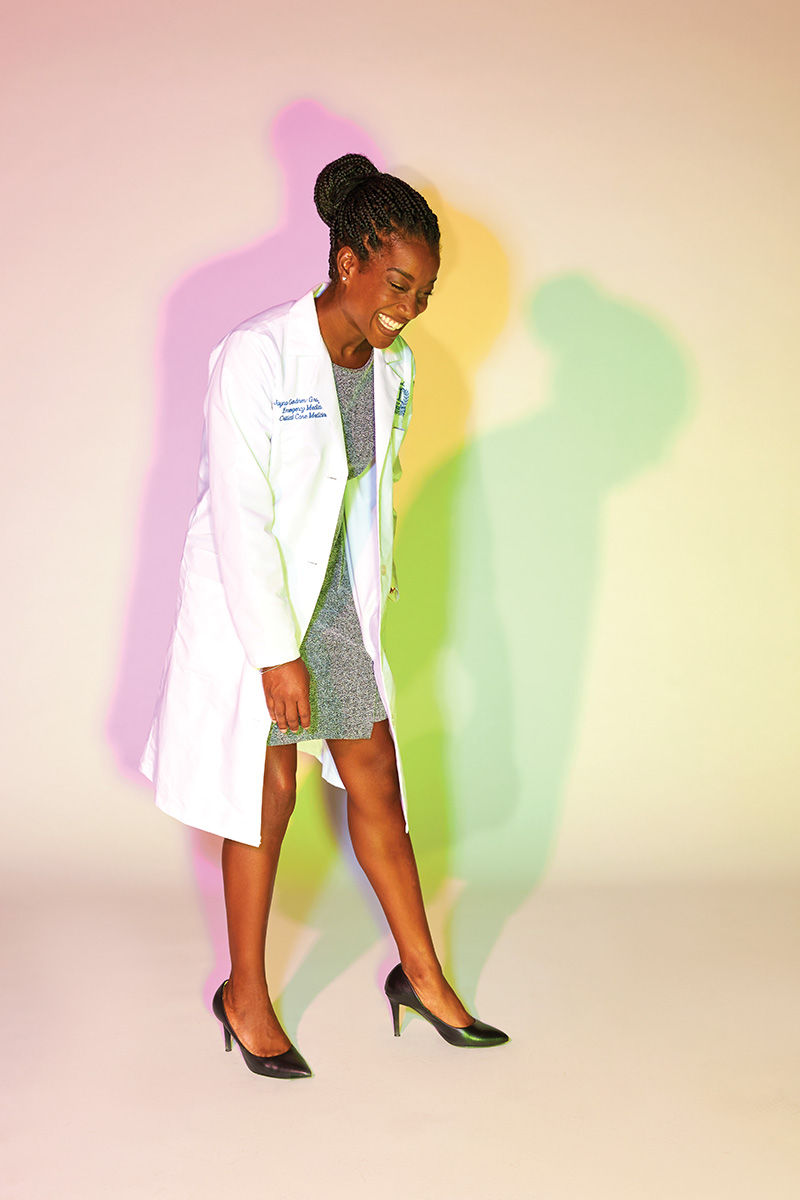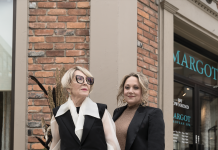
Frankenmuth resident Paul Morris, 47, woke to several surprises when he was roused from a five-week drug-induced coma in May at Henry Ford Hospital. The previously healthy father of four was now a near-death COVID-19 survivor with a new set of transplanted lungs who had been kept alive by a contraption called an ECMO.
In the time he was unconscious, his lungs had become so severely damaged that his survival depended entirely on an ECMO machine — a device pioneered by Michigan scientists that artificially breathes and pumps blood so the heart and lungs can rest. “My lungs just became stiff, fibrous, and dense,” Morris says. “I don’t know what would have happened without the ECMO machine. ECMO kept me going until the transplant.”
Indeed, though ventilators have been regarded as the Hail Mary of efforts to keep COVID-19 patients alive, the previously seldom-used ECMO machines have been the MVPs when even last-ditch breathing assistance is no longer effective. Unlike a ventilator, which just helps the patient breathe, the ECMO machine — short for extracorporeal membrane oxygenation — also supplies blood with oxygen outside the body. Henry Ford is among the less than 10 percent of hospitals in the U.S. that have ECMO machines.
There are two types of ECMO machine: The VA ECMO is connected to both a vein and an artery and is used when there are problems with both the heart and the lungs. The VV ECMO is connected to one or more veins and is used only for critical lung dysfunction. Before the pandemic, the technology — developed by University of Michigan surgeon Dr. Robert Bartlett in the 1960s — was used occasionally for lung failure patients as a bridge to transplantation. Now, it is a lifeline for COVID-19 patients who have no other options.
“What COVID has done is tell us how crucial this technology is that we previously thought we didn’t have much need for,” says Dr. Marwan Abouljoud, director of the Henry Ford Transplant Institute.

Transplant hospitals in the U.S. reported performing 185 COVID-related lung transplants through early August, according to the United Network for Organ Sharing, a nonprofit that manages the organ transplant system.
“For folks who get to a point where they are beyond standard management, ECMO is a lifesaving event,” says Dr. Hassan Nemeh, section head of cardiac surgery and surgical director of heart and lung transplant at Henry Ford, who was Morris’ surgeon. “For those who progress to full lung destruction, we are able to get them to transplant, because otherwise there is no way to help them.”
The machine — manufactured by Swedish medical technology company Getinge — is in scarce supply in the U.S., but it has been a staple at Henry Ford Hospital since the early 2000s, where several doctors including Dr. Jayna Gardner-Gray and Dr. Jackie Pflaum-Carlson have become proficient and experienced, Nemeh says. So far, it has been used to assist with six transplants at the facility that were precipitated by COVID-19. Many other COVID patients who did not receive transplants were also placed on the machine.
The machine is complex and costly to use — on average, $10,000 to $14,000 per use, Nemeh says. It can be used for multiple types of heart or lung damage. That includes a small subset of patients with lung failure caused by the flu.
But now that COVID-19 has given ECMO a broader use, more hospitals will likely feel the need to shift resources and capacity to accommodate more ECMO patients, Abouljoud says. “On one end, we say, ‘Great, we have the technology and we’ve found yet another use for it and we’ve proven we can save lives,’” he says. “But we also have to put the resources in to make it more accessible.”

Indeed, many critically ill COVID-19 patients across the country are forced to go out of state to find facilities equipped with ECMO technology. Most hospitals in Florida, for instance, have run out of ECMO capacity, according to news reports.
Morris feels fortunate to have had access to the machine, he says. He was placed on ECMO April 23, and on May 4 his name was added to the national lung registry. His wife, Laura, got a call May 6 that lungs were available for her husband.
“Without the machine,” she says, “I would have had to be in the most awful position to pull the plug on my husband. ECMO was the path
to transplant.”
Since his surgery, Morris has successfully undergone pulmonary therapy and is fully vaccinated. The tracheostomy he had at the hospital left his vocal cords damaged, and he laments the loss of his singing voice and his ability to use sarcasm with just a slight shift in vocal pitch. But he’s thankful he survived.
“Without these lungs,” he says, “I just wouldn’t be alive.”
Each of the physicians featured in this story made our 2021 Top Docs list. See who else made the list here, and find more stories from the October 2021 issue of Hour Detroit magazine in our digital edition.
|
|
|









